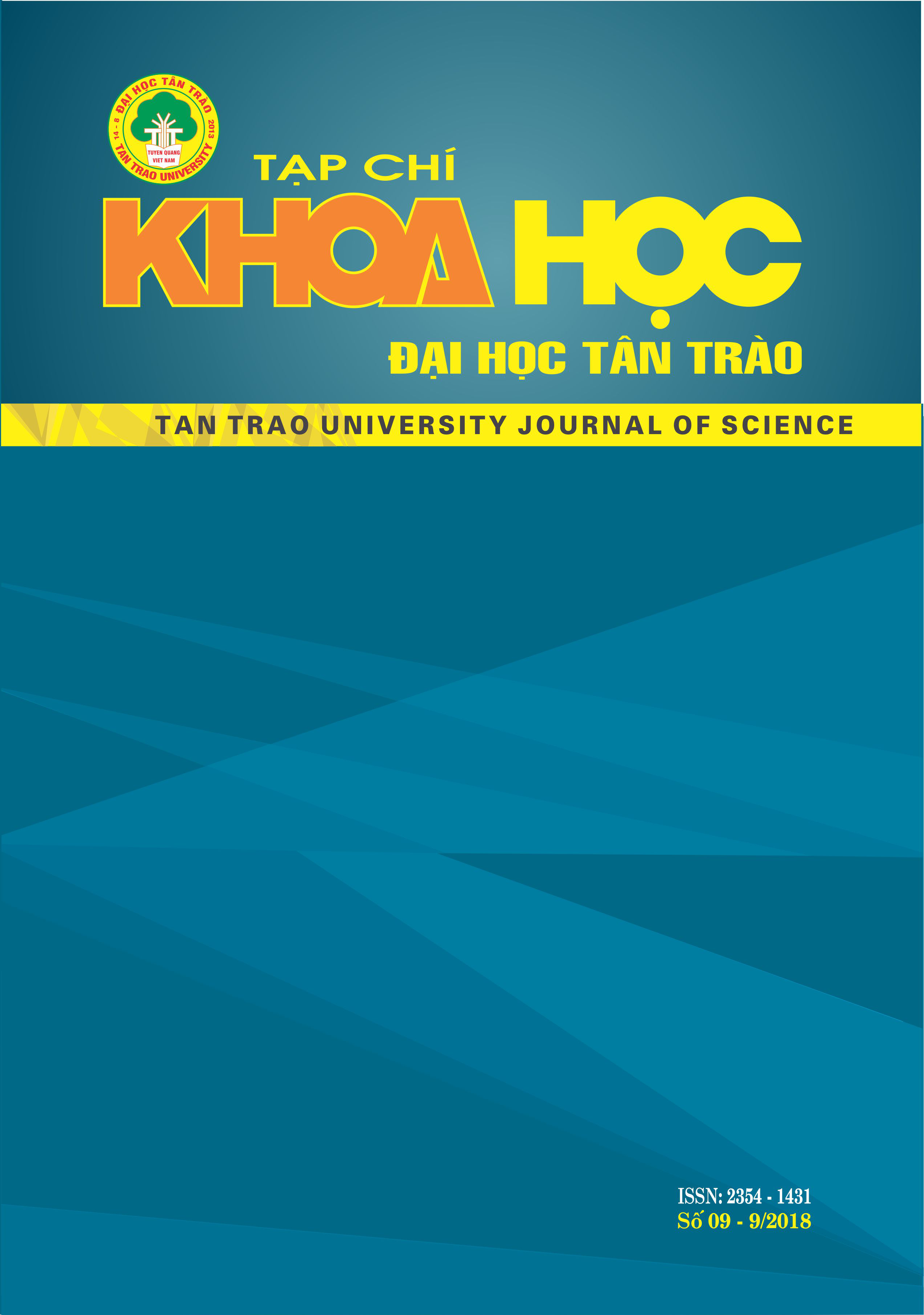Vận dụng tư tưởng Hồ Chí Minh về giáo dục đạo đức cho thanh niên trong bối cảnh công nghiệp hóa, hiện đại hóa đất nước
DOI:
https://doi.org/10.51453/2354-1431/2018/165Từ khóa:
Thanh niên, thế hệ trẻ, đạo đức, giáo dục đạo đức, giáo dục đạo đức cho sinh viên, công nghiệp hóa, hiện đại hóa, tÆ° tưởng Hồ Chà Minh vá» giáo dục đạo đức.Tóm tắt
Thanh niên là lực lượng rất quan trọng và sự phát triển của thanh niên quan hệ trực tiếp đến vận mệnh, tương lai của đất nước, của dân tộc. Vì thế, bất cứ quốc gia nào muốn tồn tại, phát triển bền vững và cường thịnh đều phải quan tâm tới việc chăm lo giáo dục cho thanh niên, đặc biệt là giáo dục đạo đức cho họ. Sinh thời, Chủ tịch Hồ Chí Minh đặc biệt quan tâm đến vấn đề đạo đức nói chung, giáo dục đạo đức cho thanh niên nói riêng. Tư tưởng của Hồ Chí Minh về giáo dục đạo đức cho thanh niên đã được thể hiện ở nhiều bài nói, bài viết và đặc biệt là những hoạt động và tấm gương của Người đối với thanh niên. Ngày nay, trong bối cảnh đẩy mạnh công nghiệp hóa, hiện đại hóa (CNH,HĐH) đất nước, vận dụng tư tưởng Hồ Chí Minh về giáo dục đạo đức cho thanh niên nhằm đào tạo những thế hệ cách mạng cho đời sau có ý nghĩa thực tiễn sâu sắc.
Tải xuống
Tài liệu tham khảo
1. Di chúc của Chủ tịch Hồ Chí Minh (1999), Nxb Chính trị Quốc gia, Hà Nội, tr.32;
2. Hồ Chí Minh toàn tập (1995), t.6, Nxb Chính trị Quốc gia, tr.95;
3. Hồ Chí Minh toàn tập, xuất bản lần thứ 2, Nxb Chính trị Quốc gia, T.9, Tr.293
4. Hồ Chí Minh toàn tập (2000), t.4, Nxb Chính trị Quốc gia, tr.167;
5. Nghị quyết Hội nghị lần thứ 8, Ban Chấp hành Trung ương khóa XI (Nghị quyết số 29-NQ/TW) với nội dung Đổi mới căn bản, toàn diện giáo dục và đào tạo.
Tải xuống
Đã Xuất bản
Cách trích dẫn
Số
Chuyên mục
Giấy phép

Tác phẩm này được cấp phép theo Giấy phép Quốc tế Creative Commons Attribution-ShareAlike 4.0 .
Bài báo được xuất bản ở Tạp chí Khoa học Đại học Tân Trào được cấp phép theo giấy phép Ghi công - Chia sẻ tương tự 4.0 Quốc tế (CC BY-SA). Theo đó, các tác giả khác có thể sao chép, chuyển đổi hay phân phối lại các bài báo này với mục đích hợp pháp trên mọi phương tiện, với điều kiện họ trích dẫn tác giả, Tạp chí Khoa học Đại học Tân Trào và đường link đến bản quyền; nêu rõ các thay đổi đã thực hiện và các nghiên cứu đăng lại được tiến hành theo cùng một bản quyền.
Bản quyền bài báo thuộc về các tác giả, không hạn chế số lượng. Tạp chí Khoa học Tân Trào được cấp giấy phép không độc quyền để xuất bản bài báo với tư cách nhà xuất bản nguồn, kèm theo quyền thương mại để in các bài báo cung cấp cho các thư viện và cá nhân.
Mặc dù các điều khoản của giấy phép CC BY-SA không dành cho các tác giả (với tư cách là người giữ bản quyền của bài báo, họ không bị hạn chế về quyền hạn), khi gửi bài tới Tạp chí Khoa học Đại học Tân Trào, tác giả cần đáp ứng quyền của độc giả, và cần cấp quyền cho bên thứ 3 sử dụng bài báo của họ trong phạm vi của giấy phép.






